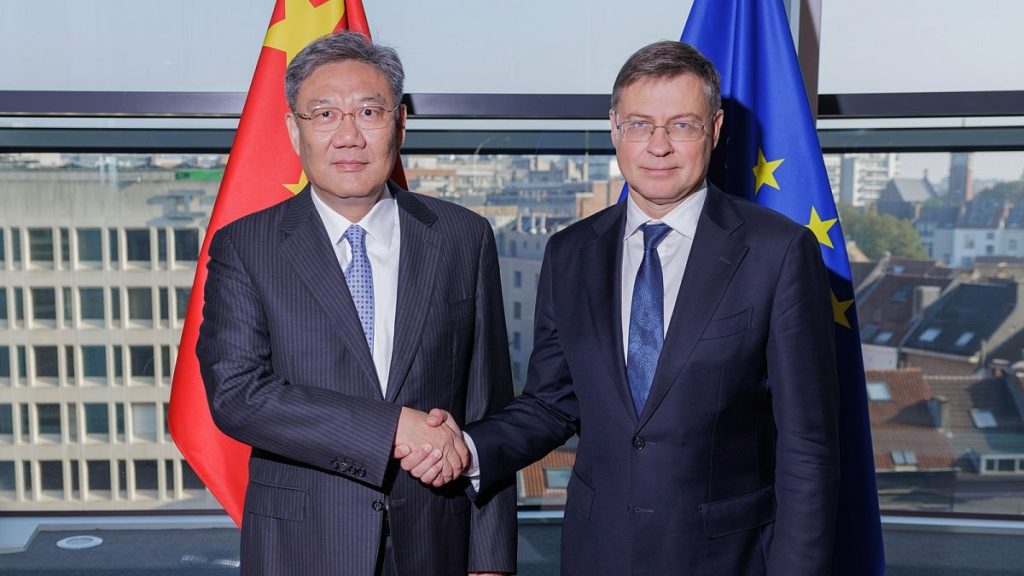Brussels and Beijing have come to an agreement to re-evaluate price undertakings in order to potentially avoid additional tariffs on electric vehicles manufactured in China. Despite a high-profile attempt to resolve the ongoing dispute between the European Commission and the Chinese government regarding battery electric vehicles, a breakthrough was not achieved as differences persist. Both parties, however, have expressed a commitment to intensifying negotiations in the hopes of finding a resolution. Brussels has proposed additional import tariffs on Chinese-made electric vehicles, ranging from 7.8% to 35.3%, to address accusations of unfair competition due to subsidies provided by Beijing to lower retail prices, creating an economic disadvantage for the EU industry. Member states will need to ratify the proposed tariffs before November to make them permanent for five years.
China has publicly criticized the Commission’s inquiry into battery electric vehicles as a protectionist act and exaggerated the subsidies. However, behind the scenes, Chinese officials have sought to negotiate a solution to avoid steep tariffs and protect domestic companies. Chinese Minister Wang Wentao met with Vice-President Valdis Dombrovkis in Brussels to discuss the issue, where Dombrovkis defended the Commission’s proposal based on facts and evidence and criticized Beijing’s retaliatory probes into European exports. Both sides reaffirmed their willingness to find a solution through friendly dialogue and consultation, although China warned of reprisals if the EU proceeds with unreasonable tax measures. Negotiations are expected to continue until member states vote on the tariffs.
The focus of Thursday’s meeting between Brussels and Beijing was on re-evaluating the possibility of price undertakings as a trade tool to control export volumes and prevent anti-subsidy tariffs. Chinese firms subject to the proposed duties, like BYD, Geely, and SAIC, had previously offered a price undertaking that was rejected by Brussels. Beijing has increased its lobbying efforts to persuade certain member states to vote against the tariffs, with Hungary opposed to the measures due to Chinese investment plans and Germany, under pressure from its automotive industry, leaning towards rejecting them. A qualified majority of 15 countries representing at least 65% of the bloc’s population is needed to prevent the duties from being implemented.
Chinese lobbying efforts achieved success when Spain’s Prime Minister Pedro Sánchez publicly called on the Commission to reconsider the proposed tariffs during a visit to China. The Spanish government’s apparent u-turn on the issue was seen as a consequence of China’s divide-and-conquer tactics and the recent €1-billion deal between Sánchez and a Chinese company. The German government welcomed Spain’s position, indicating a shared direction of travel in response to China’s influence. The unexpected shift in Spain’s stance caught Brussels off guard and highlighted the strategic tactics employed by China in influencing member states’ decisions on trade policies. The ongoing negotiations between Brussels and Beijing will continue until member states vote on the proposed tariffs.


